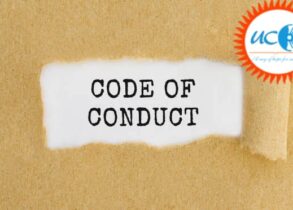Competition Commission of India
Q. In order to control competition in the Indian market, discuss the function and authority of the Competition Commission of India (CCI). How successful has the CCI been in encouraging fair competition and defending consumers from unfair business practises? Examine.
Approach
- Start with basic intro on the CCI, and simply write different role and powers
- Then examine how much CCI has been effective in its work by giving different examples.
Introduction
The Indian Competition Commission seeks to provide a healthy environment for competition. by proactive interaction with all parties involved, such as customers, businesses, governments, and international organisations.
Body
Role and powers:
- To end practises that harm competition, safeguard the interests of consumers, and guarantee trade freedom in Indian markets
- To provide a competitive analysis on a request from a statutory authority
- To engage in competition advocacy, raise public awareness of the issue, and provide training on the subject.
- To make the markets function in a way that promotes and protects consumer welfare.
- To promote faster and more equitable economic growth and development, ensure fair and healthy competition in all economic activities across the nation.
- In order to ensure the most effective use of economic resources, implement competition policies.
Work and judgements of CCI for promoting healthy competition:
- Google: In 2014, CCI fined Google 10 million for failing to abide with the Director General’s (DG) instructions to provide information and documentation.
- In order to prevent market competitors from competing, Google was forced to submit to an antitrust investigation by the commission. Based on an examination of a comparable case in the EU where Google was found guilty and penalised, this investigation was commissioned.
- Cement firms: In June 2012, CCI fined 11 cement firms a total of 63.07 billion yen ($910 million) for engaging in cartel activity.
- It was alleged that regular meetings between cement businesses to set prices, manage market share, and restrict supplies resulted in illicit profits.
- BCCI: In 2013 CCI fined the BCCI $522 million (US$7.6 million) for abusing its dominating position.
- The CCI concluded that the terms of the IPL franchise agreements were biassed in favour of BCCI and that franchises had no input into the contract’s provisions, making it unfair and discriminatory.
- Telecom companies: In response to a complaint made by Reliance Jio against the cartelization by its rivals Bharti Airtel, Vodafone India, and Idea cellular, the CCI ordered an investigation into the operation of the Cellular Operators Association of India (COAI).
- Airlines: CCI imposed a fine of ₹258 crores upon Three Airlines in 2015. Competition Commission of India (CCI) had penalized the three airlines for cartelisation in determining the fuel surcharge on air cargo.
- The Commission has adjudicated more than 1,200 antitrust cases i.e., case disposal rate is 89 % in antitrust cases.
- It has also reviewed more than 900 mergers and acquisitions till date, cleared most of them, within a record average time of 30 days.
- The Commission has also come up with several innovations like the ‘Green Channel’ provision for automated approval on combinations/transactions and cleared more than 50 of such transactions.
Challenges:
- The need for a strong competition law has increased with the introduction of Web 3.0, AI, IoT, Blockchain, and other technological advancements, as well as the emergence of issues like data protection and privacy, search bias, platform neutrality, deep discounting, hostile takeovers, confidentiality, etc.
- The CCI’s duties also intersect with those of other regulatory agencies, such the Telecom Regulatory Authority of India, in areas like telecom, the internet, and big technology (TRAI).
- Critics have referred to CCI as a “Toothless regulator.” The majority of CCI orders are being appealed to the National Company Law Appellate Tribunal (NCLAT) or are being contested in the high courts or Supreme Court.
Conclusion
India’s Commission currently needs to alter its market definition. It is important to examine various emerging markets, including the digital one, to make sure that no monopolistic or duopolistic tendencies exist that could result in price increases and supply-side manipulations.








